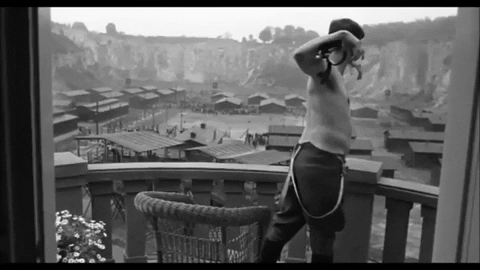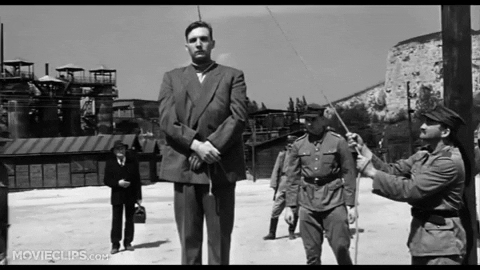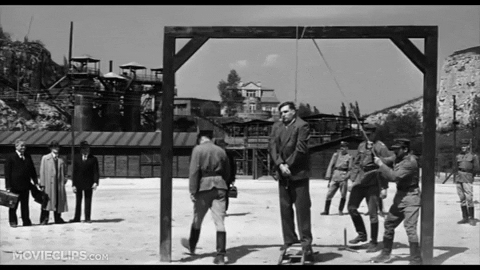#amon goeth edit
Text
Happy amon
29 notes
·
View notes
Photo






ℜ𝔞𝔩𝔭𝔥 𝔉𝔦𝔢𝔫𝔫𝔢𝔰 𝔞𝔰 𝔄𝔪𝔬𝔫 𝔊𝔬𝔢𝔱𝔥 𝔬𝔫 𝔖𝔠𝔥𝔦𝔫𝔡𝔩𝔢𝔯'𝔰 𝔏𝔦𝔰𝔱, 𝔖𝔱𝔢𝔳𝔢𝔫 𝔖𝔭𝔦𝔢𝔩𝔟𝔢𝔯𝔤, յգգՅ
𝔖𝔠𝔥𝔦𝔫𝔡𝔩𝔢𝔯'𝔰 𝔏𝔦𝔰𝔱 𝔦𝔰 𝔞 յգգՅ 𝔄𝔪𝔢𝔯𝔦𝔠𝔞𝔫 𝔢𝔭𝔦𝔠 𝔥𝔦𝔰𝔱𝔬𝔯𝔦𝔠𝔞𝔩 𝔡𝔯𝔞𝔪𝔞 𝔣𝔦𝔩𝔪 𝔡𝔦𝔯𝔢𝔠𝔱𝔢𝔡 𝔞𝔫𝔡 𝔭𝔯𝔬𝔡𝔲𝔠𝔢𝔡 𝔟𝔶 𝔖𝔱𝔢𝔳𝔢𝔫 𝔖𝔭𝔦𝔢𝔩𝔟𝔢𝔯𝔤 𝔞𝔫𝔡 𝔴𝔯𝔦𝔱𝔱𝔢𝔫 𝔟𝔶 𝔖𝔱𝔢𝔳𝔢𝔫 ℨ𝔞𝔦𝔩𝔩𝔦𝔞𝔫.
#Schindler's List#1993#American epic historical drama film#Steven Spielberg#Steven Zaillian#based on the 1982 novel Schindler's Ark#produced#directed#written#90's#90s#90's movies#90s movies#Ralph Fiennes#Amon Goeth#my edit#my gifs#gifs
117 notes
·
View notes
Text
youtube
watch on youtube my edit
#amon goeth#amon goth#schindler's list#nazi#nazi edit#no jews were harmed during the making of this edit#Youtube
2 notes
·
View notes
Photo

Liam Neeson in Schindler's List (Steven Spielberg, 1993)
Cast: Liam Neeson, Ben Kingsley, Ralph Fiennes, Caroline Goodall, Jonathan Sagall, Embeth Davidtz. Screenplay: Steven Zaillian, based on a book by Thomas Keneally. Cinematography: Janusz Kaminski. Production design: Allan Starski. Film editing: Michael Kahn. Music: John Williams.
Amid the nearly universal acclaim for Schindler's List, two major criticisms are often heard. One is that Spielberg tends toward the sentimental, especially at the end of the film: He lets Schindler's remorse at having not been able to save more Jews from the Holocaust go on too long, and the appearance of the surviving Schindlerjuden with the actors who played them is an unnecessary extension of the film's already clear moral statement, blurring the distinction between documentary and fictionalized narrative. The other objection is that the appearance of the girl in the red coat during the liquidation of the Kraków ghetto is a too-showy use of film technique in what should be a gripping, realistic scene. The former objection is a highly subjective one: For many, the film needs something to soften the harshness of the story's catharsis. For others, the answer is simply, "Let Spielberg be Spielberg," a gifted but traditional storyteller whose vision of the material he chooses is invariably personal. It's the second objection that gets to the heart of what film criticism is all about. I think David Thomson, in his brief essay on Schindler's List in Have You Seen ... ?, puts the objection most provocatively when he observes, "With that one arty nudge Spielberg assigned his sense of his own past to the collected memories of all the films he had seen. All of a sudden, the drab Krakow vista became a set, with assistant directors urging the extras into line.... It was an organization of art and craft designed to re-create a terrible reality done nearly to perfection. But in that one small tarting up ..., there lay exposed the comprehensive vulgarity of the venture." I can't be as harsh as Thomson, for one thing because when I saw the film in the theater shortly after its release in 1993, I didn't notice the red coat -- the one note of color in the middle of the black-and-white film -- because I am mildly red-green colorblind. (It's difficult to explain to the non-colorblind, but those of us with the color deficiency usually see the color in question, but it's not quite the same color that the normally sighted see.) I did, however, notice the little girl: The framing by Spielberg and cinematographer Janusz Kaminski puts her in the center of the action and makes her search for a hiding place evident even in a long shot. What I did miss that time was the reappearance of the girl's body in a stack of corpses later in the film, something that would be evident to anyone who had earlier seen the red of the coat. Later, when I saw the film on video, after having read about the controversy over the red highlight, I was able to perceive the color -- not so intense for me as perhaps for you, but once brought to my attention inescapable -- and to be shocked by its reappearance in the later scene. And when I watched the film again I realized the function of the "arty nudge": When we first see the girl in the red coat, we see her from the point of view of Schindler (Liam Neeson) himself, on a hillside above the ghetto. And when we see her body, we are seeing it again from the point of view of Schindler, visiting the cremation site where Amon Goeth (Ralph Fiennes) has been ordered to burn the bodies of those killed in the liquidation of the ghetto. It is a subtle but effective move because it coincides with (even perhaps precipitates) Schindler's decision to try to save as many of his Jewish workers as he can. Is it "arty" or "tarting up" or "vulgar"? Perhaps it is, but it's also effective filmmaking. And only the fact that the Holocaust remains so large and sacrosanct an event in the moral history of the West raises the question of whether "effective filmmaking" is inappropriate to such a subject.
6 notes
·
View notes
Photo


ㅤㅤㅤ ㅤㅤㅤ
ㅤㅤㅤㅤㅤ
ᴘoᴡᴇʀ ɪs ᴡнᴇɴ ᴡᴇ нᴀvᴇ ᴇvᴇʀʏ ᴊᴜsтɪғɪcᴀтɪoɴ тo ᴋɪʟʟ
ㅤㅤㅤ ㅤㅤㅤ
ㅤㅤㅤㅤㅤ
ㅤㅤㅤㅤㅤㅤㅤ ㅤㅤㅤㅤㅤㅤㅤㅤㅤㅤㅤ ㅤㅤㅤ
ㅤㅤㅤㅤㅤ ㅤㅤㅤㅤㅤㅤㅤㅤㅤㅤㅤㅤㅤㅤㅤㅤㅤㅤㅤㅤᴀɴᴅ ᴡᴇ ᴅoɴ'т
ㅤㅤㅤ ㅤㅤㅤ
37 notes
·
View notes
Text
In some versions of Origins, Cullen's a combination of Amon Goeth, Emperor Palpatine and Voldemort...and he is a rapist. In the version of Origins I have (Ultimate Edition from GOG), he's an awkward 19-year-old who doesn't know how to talk to girls.
I was one of the people who couldn’t understand what the big deal about him was during the Origins/DA2 era but during DAI, all the noise prompted me to look into the character. This is his dialogue with a female mage during the origin story.


This is one line that I’ve seen people use against him:

HoW RoMaNtIc YoU tElL uR cRuSh ThAt U wErE gOiNg To KiLl HeR...then the same people turn around and swoon over Alistair’s awkwardness. Is it normal to be nervous around the person you like?
He’s probably internally freaking out and had million of things running through his head: stay calm, be cool, don’t say anything stupid. Then he does just that. I bet he realized what he said right after the words left his mouth and wanted the ground to open up and swallow him.
Cullen: I’m so glad I didn’t have to kill you
Cullen:

Cringelord Cullen.

They should’ve kept “questioned whether I could’ve helped you...” in the actual dialogue, ugh. Cullen, you fool!


He can barely form a coherent sentence and says stupid stuff in Amell/Surana’s presence, and people act like he’s forcing himself on her every night.

What are you thinking of that’s really inappropriate, Cullen? What fanfiction were you writing in your head?
His crime is having feelings for a Female Mage Warden...as if people have the ability to control who they fall in love with.
The problem with the fandom is the complete absence of nuance lol. Rules (and the like) are cut and dry, but it doesn’t always translate well into reality because we’re human, imperfect and messy. In this case, Mage/Templar relationships are forbidden but this didn't stop many from getting involved with each other, if you talk to Enchanter Ellendra in DAI, those kind of romantic entanglements seem common (Greagoir and Wynne? It seems Greagoir never got over how Wynne hid his son from him, and I like to think he picked Cullen to slay Amell because he was trying to prevent him from going down the same path).

I think I got a toothache. What a 𝒞𝒾𝓃𝓃𝒶𝓂𝑜𝓃 𝒷𝓊𝓃.
As for power dynamics, here’s another angle: it's Amell/Surana who has a lot of power over Cullen. She figuratively stripped away the armor and revealed the man inside. Cullen probably feels completely exposed and powerless around her, not able to completely hide behind the Templar persona. If Amell/Surana wanted, she could've exploited this for her benefit (and no, I don’t mean sex but manipulation). It's a bit like blood magic, except it's not...maybe this is why he goes full Militant Templar after Broken Circle and turned into a massive asshole during the early half of DA2. He feels terrible about his affections because it’s against the rules (this is also due to him being new on the job). His train of thought must’ve been: years of training, discipline, study and all it took was a girl/a look/a smile...surely his torture at the hands of the blood mages was a judgement from the Maker for failing to be a proper Templar...because proper Templars do not have feelings, proper Templars do not think about people they were watching over that way.
Some (not all) Cullen hate reminds me of Tifa hate: it’s done in bad faith (hE cAlLs AmElL/sUrAnA a “THING”1!1). On the other hand, some fans are...cringy.
And this is how I started shipping Cullen with my warden (post-Inquisition, pre-Origins Cumell is meh). I’d like to extend my heartfelt gratitude to the fandom for pointing me in this direction.
#dragon age#dragon age origins#cullen rutherford#commander cullen#cullen stanton rutherford#cullen x amell#da: origins#da origins#da#dao#da:o#dragon age lore#dragon age meta#cullen/amell#my posts
103 notes
·
View notes
Photo

THE BOOK OF JUDITH* - From The Douay-Rheims Bible - Latin Vulgate
Chapter 12
INTRODUCTION.
The sacred writer of this Book is generally believed to be the high priest Eliachim, (called also Joachim.) The transactions herein related, most probably happened in his days, and in the reign of Manasses, after his repentance and return from captivity. It takes its name from that illustrious woman, by whose virtue and fortitude, armed with prayer, the children of Israel were preserved from the destruction threatened them by Holofernes and his great army. It finishes with her canticle of thanksgiving to God. Ch. --- He was a chief officer at court, under Ezechias, (4 K. xviii. 18. H.) before he was high priest, assuming his father Helchias's name. Many suppose that he was the author of this Book, as Josephus informs us that the priests recorded the most remarkable transactions. But this would prove that they wrote all the histories of the Bible. S. Jerom (in Agg. i. 6.) seems to believe that Judith left these memoirs. Yet we have no certain proof of the author. Josephus passes over this history, as he professed to exhibit only the Heb. books. Ant. x. 11. Prol. &c. S. Jerom doubts not but this was written in Chaldee, from which language he translated it; unless he caused it to be first explained to him in Heb. as he did the Book of Tobias. C. --- He might, however, have attained sufficient knowledge of the former language, which is so like the Hebrew, before he undertook this work. H. --- He professes to give "the sense," rather than a verbal translation. The Greek must have been taken from another copy, and is followed by the Syriac, in which we find some passages more exact than in the present Greek copies. The original is entirely lost. It might have removed many difficulties. Those however which are started by our adversaries, are not unanswerable. Grotius would suppose that this work is only a parable, representing the state of the Jewish church under the persecution of Epiphanes. But this singular notion has no foundation; and if it had, the authenticity of the Book would not be endangered, as the parable both of the Old and New Testament are certainly true, and written by inspiration. C. --- Luther styles it a poetical comedy; (Pref. et Sympos. 29.) but both Jews and Christians have esteemed it as a true history: (W.) and this innovator (H.) allows, that "the Book is beautiful, and written by an inspired prophet." C. --- The Fathers have looked upon it with the utmost veneration; and S. Jerom, though he was at one time under some doubts, placed it on a level with the Books of Ruth, and Esther, &c. Ep. ad Principiam. --- It is admitted by Origen, Tertullian, S. Chrys. S. Hilary, V. Bede, &c. as the history of a most valiant matron, delivering God's people from a cruel tyrant. W. --- Some place this event under Cambyses, son of Cyrus; (Euseb. S. Aug.) others under Xerxex, (Torniel) or Darius Hystaspes, (E.) or Ochus: (Sulp. Severus) but the opinion which has been given above is more accurate; (C.) or rather Bethulia was saved, while Manasses was in captivity, (in the 10th year of his reign) and the high priest administered affairs in his absence. At this point, Judith might be thirty-five years old. She lived seventy years afterwards; and many days (perhaps eight years more) passed before the country was invaded by Pharao Nechao. C. xvi. 30. Thus Manasses survived 45 years, Amon 2, Josias 31; total 78. This chronology removes every difficulty. Houbig. Pref. --- If true, it seems probable that the work would be originally in Heb. as the Chaldee was used only after the captivity, (H.) which may be farther proved from C. i. 15. Greek. Houbigant. --- Protestants prefer to translate this and the other apocrypha from the Greek. M.
* One of the seven Deutero-Canonical books, missing from most non-Catholic Bibles.
The additional Notes in this Edition of the New Testament will be marked with the letter A. Such as are taken from various Interpreters and Commentators, will be marked as in the Old Testament. B. Bristow, C. Calmet, Ch. Challoner, D. Du Hamel, E. Estius, J. Jansenius, M. Menochius, Po. Polus, P. Pastorini, T. Tirinus, V. Bible de Vence, W. Worthington, Wi. Witham. — The names of other authors, who may be occasionally consulted, will be given at full length.
Verses are in English and Latin. HAYDOCK CATHOLIC BIBLE COMMENTARY
This Catholic commentary on the Old Testament, following the Douay-Rheims Bible text, was originally compiled by Catholic priest and biblical scholar Rev. George Leo Haydock (1774-1849). This transcription is based on Haydock's notes as they appear in the 1859 edition of Haydock's Catholic Family Bible and Commentary printed by Edward Dunigan and Brother, New York, New York.
TRANSCRIBER'S NOTES
Changes made to the original text for this transcription include the following:
Greek letters. The original text sometimes includes Greek expressions spelled out in Greek letters. In this transcription, those expressions have been transliterated from Greek letters to English letters, put in italics, and underlined. The following substitution scheme has been used: A for Alpha; B for Beta; G for Gamma; D for Delta; E for Epsilon; Z for Zeta; E for Eta; Th for Theta; I for Iota; K for Kappa; L for Lamda; M for Mu; N for Nu; X for Xi; O for Omicron; P for Pi; R for Rho; S for Sigma; T for Tau; U for Upsilon; Ph for Phi; Ch for Chi; Ps for Psi; O for Omega. For example, where the name, Jesus, is spelled out in the original text in Greek letters, Iota-eta-sigma-omicron-upsilon-sigma, it is transliterated in this transcription as, Iesous. Greek diacritical marks have not been represented in this transcription.
Footnotes. The original text indicates footnotes with special characters, including the astrisk (*) and printers' marks, such as the dagger mark, the double dagger mark, the section mark, the parallels mark, and the paragraph mark. In this transcription all these special characters have been replaced by numbers in square brackets, such as [1], [2], [3], etc.
Accent marks. The original text contains some English letters represented with accent marks. In this transcription, those letters have been rendered in this transcription without their accent marks.
Other special characters.
Solid horizontal lines of various lengths that appear in the original text have been represented as a series of consecutive hyphens of approximately the same length, such as ---.
Ligatures, single characters containing two letters united, in the original text in some Latin expressions have been represented in this transcription as separate letters. The ligature formed by uniting A and E is represented as Ae, that of a and e as ae, that of O and E as Oe, and that of o and e as oe.
Monetary sums in the original text represented with a preceding British pound sterling symbol (a stylized L, transected by a short horizontal line) are represented in this transcription with a following pound symbol, l.
The half symbol (1/2) and three-quarters symbol (3/4) in the original text have been represented in this transcription with their decimal equivalent, (.5) and (.75) respectively.
Unreadable text. Places where the transcriber's copy of the original text is unreadable have been indicated in this transcription by an empty set of square brackets, [].
Chapter 12
Judith goeth out in the night to pray: she is invited to a banquet with Holofernes.
[1] Then he ordered that she should go in where his treasures were laid up, and bade her tarry there, and he appointed what should be given her from his own table.
Tunc jussit eam introire ubi repositi erant thesauri ejus, et jussit illic manere eam, et constituit quid daretur illi de convivio suo.
[2] And Judith answered him and said: Now I cannot eat of these things which thou commandest to be given me, lest sin come upon me: but I will eat of the things which I have brought.
Cui respondit Judith, et dixit : Nunc non potero manducare ex his, quae mihi praecipis tribui, ne veniat super me offensio : ex his autem, quae mihi detuli, manducabo.
[3] And Holofernes said to her: If these things which thou hast brought with thee fail thee, what shall we do for thee?
Cui Holofernes ait : Si defecerint tibi ista, quae tecum detulisti, quid faciemus tibi?
[4] And Judith said: As thy soul liveth, my lord, thy handmaid shall not spend all these things till God do by my hand that which I have purposed. And his servants brought her into the tent which he had commanded.
Et dixit Judith : Vivit anima tua, domine meus, quoniam non expendet omnia haec ancilla tua, donec faciat Deus in manu mea haec quae cogitavi. Et induxerunt illam servi ejus in tabernaculum, quod praeceperat.
[5] And when she was going in, she desired that she might have liberty to go out at night and before day to prayer, and to beseech the Lord.
Et petiit dum introiret, ut daretur ei copia nocte et ante lucem egrediendi foras ad orationem, et deprecandi Dominum.
[6] And he commanded his chamberlains, that she might go out and in, to adore her God as she pleased, for three days.
Et praecepit cubiculariis suis ut sicut placeret illi, exiret et introiret ad adorandum Deum suum per triduum :
[7] And she went out in the nights into the valley of Bethulia, and washed herself in a fountain of water.
et exibat noctibus in vallem Bethuliae, et baptizabat se in fonte aquae.
[8] And as she came up, she prayed to the Lord the God of Israel, that he would direct her way to the deliverance of his people.
Et ut ascendebat, orabat Dominum Deum Israel, ut dirigeret viam ejus ad liberationem populi sui.
[9] And going in, she remained pure in the tent, until she took her own meat in the evening.
Et introiens, munda manebat in tabernaculo usque dum acciperet escam suam in vespere.
[10] And it came to pass on the fourth day, that Holofernes made a supper for his servants, and said to Vagao his eunuch: Go, and persuade that Hebrew woman, to consent of her own accord to dwell with me.
Et factum est : in quarto die Holofernes fecit coenam servis suis, et dixit ad Vagao eunuchum suum : Vade, et suade Hebraeam illam ut sponte consentiat habitare mecum.
[11] For it is looked upon as shameful among the Assyrians, if a woman mock a man, by doing so as to pass free from him.
Foedum est enim apud Assyrios, si femina irrideat virum agendo ut immunis ab eo transeat.
[12] Then Vagao went in to Judith, and said: Let not my good maid be afraid to go in to my lord, that she may be honoured before his face, that she may eat with him and drink wine and be merry.
Tunc introivit Vagao ad Judith, et dixit : Non vereatur bona puella introire ad dominum meum, ut honorificetur ante faciem ejus, ut manducet cum eo, et bibat vinum in jucunditate.
[13] And Judith answered him: Who am I, that I should gainsay my lord?
Cui Judith respondit : Quae ego sum, ut contradicam domino meo?
[14] All that shall be good and best before his eyes, I will do. And whatsoever shall please him, that shall be best to me all the days of my life.
omne quod erit ante oculos ejus bonum et optimum, faciam. Quidquid autem illi placuerit, hoc mihi erit optimum omnibus diebus vitae meae.
[15] And she arose and dressed herself out with her garments, and going in she stood before his face.
Et surrexit, et ornavit se vestimento suo, et ingressa stetit ante faciem ejus.
[16] And the heart of Holofernes was smitten, for he was burning with the desire of her.
Cor autem Holofernes concussum est : erat enim ardens in concupiscentia ejus.
[17] And Holofernes said to her: Drink now, and sit down and be merry for thou hast found favour before me.
Et dixit ad eam Holofernes : Bibe nunc, et accumbe in jucunditate, quoniam invenisti gratiam coram me.
[18] And Judith said: I will drink my lord, because my life is magnified this day above all my days.
Et dixit Judith : Bibam, domine, quoniam magnificata est anima mea hodie prae omnibus diebus meis.
[19] And she took and ate and drank before him what her maid had prepared for her.
Et accepit, et manducavit, et bibit coram ipso ea quae paraverat illi ancilla ejus.
[20] And Holofernes was made merry on her occasion, and drank exceeding much wine, so much as he had never drunk in his life.
Et jucundus factus est Holofernes ad eam, bibitque vinum multum nimis, quantum numquam biberat in vita sua.
Commentary:
Ver. 1. And bade. Gr. "and ordered a bed (or table) to be prepared for her, to eat of his own meat, and drink of his wine," (H.) that her beauty might be enhanced, (Dan. i.) and to honour her. M.
Ver. 2. Upon me, as these meats had been offered to idols; (W.) or she might fear they had, and wished to avoid all scandal. 2 Mac. vi. 21. Tob. i. 12. C.
Ver. 3. Thee. Gr. adds, "for there is none of thy race."
Ver. 4. Which I. Gr. "he." --- Which. Gr. "and she slept till midnight and she arose at the morning watch." H. --- The mode of counting by hours prevailed after the captivity. C.
Ver. 5. And. Gr. "and she sent to Holofernes, saying: May my lord please to order that thy handmaid may go out to pray. And," &c. v. 6. H. --- She had prepared him to grant this request before: but out of civility, and that he may have greater confidence in her, she asks again. The choice of a retired place for prayer is very commendable, but she made choice of the fields, that she might go out of the camp afterwards without being suspected. C.
Ver. 6. Chamberlains. Gr. "life-guards, not to hinder her; and she remained in the camp three days." H.
Ver. 7. Water. Gr. "in the camp;" perhaps she washed only her hands and face. C.
Ver. 9. Pure, from forbidden food. W. --- Evening. Thus she continued to fast, to draw down the blessing of God. C.
Ver. 10. Servants. Gr. adds, "only, and he did not call any of those whom he usually employed," (H.) that they might not witness his excesses. Vagao, or Bagoas, the Persian name for an "eunuch," or chief officer; though such were generally to wait on the ladies.
Quem penes est Dominam servandi cura Bagoæ. Ovid, Amor. ii.
--- Eunuch. Gr. and Syr. add, "who was appointed over all his affairs. Persuade the Hebrew woman who is with thee to come to us, and to eat and drink with us. For we deem it shameful to dismiss such a woman, without having commerce with her; and if we do not attract her, she will deride us."
Ver. 12. Merry. This would pave the way for greater liberties. C. --- Gr. adds, "and to become this day as a daughter of the Assyrians, standing to wait in the house of Nabuchodonosor." He probably alludes to those courtezans (C.) who sung at night, before the palace, &c. Athen. Dip. xii. 2. The Persians admitted women to their feasts, though they were generally excluded in the East. Est. i. 12. Herod. v. 18.
Ver. 14. Best. Gr. "a boast, or matter of exultation." H. --- This answer seems to shock our delicacy. Did she not understand the meaning of the eunuch, which was sufficiently plain? She only passed a compliment, which always implies a tacit condition, if the thing be practicable and honest: as the words might have two meanings, she was bound in charity to interpret them in the best sense. C. --- It was surely lawful to be merry. M.
Ver. 15. Garments. Gr. adds, "and all her female ornaments; and her servant came and spread on the ground, before Holofernes, the fleeces which she had received from Bagoas, for her daily use, to eat lying upon them. And coming in, Judith fell prostrate." H. --- The custom of sitting on the ground, upon skins, to eat, is very ancient, (Targum, Est. i.) and is still observed by the Turks. The kings of Persia let none eat with them at the same table. Heraclides. Athen. v. 10. - The character of drunkenness, with which this nation has been branded, seems not unfounded. C.
Ver. 16. Her. Gr. adds, "company; and he had sought an opportunity of deluding her, from the day when he first beheld her." He justly, therefore, fell into the snare which he had laid.
Ver. 20. Life. Gr. adds, "in any one day," (H.) at supper. M.
1 note
·
View note
Text
Dinner party with amon goeth
#amon goeth#amon goeth edit#schindler's list#ww2 germany#fyp#viral#hans landa#hans landa edit#inglorious basterds#edit
35 notes
·
View notes
Text
youtube
AMON GOETH | VS CAPTAIN VS MAJOR HELLSTROM VS HANS LANDA
2 notes
·
View notes
Text
Amon Goeth edit
13 notes
·
View notes
Photo


ℜ𝔞𝔩𝔭𝔥 𝔉𝔦𝔢𝔫𝔫𝔢𝔰 𝔞𝔰 𝔄𝔪𝔬𝔫 𝔊ö𝔱𝔥 𝔬𝔫 𝔖𝔠𝔥𝔦𝔫𝔡𝔩𝔢𝔯'𝔰 𝔏𝔦𝔰𝔱 (յգգՅ) 𝔡𝔦𝔯𝔢𝔠𝔱𝔢𝔡 𝔞𝔫𝔡 𝔭𝔯𝔬𝔡𝔲𝔠𝔢𝔡 𝔟𝔶 𝔖𝔱𝔢𝔳𝔢𝔫 𝔖𝔭𝔦𝔢𝔩𝔟𝔢𝔯𝔤 𝔞𝔫𝔡 𝔴𝔯𝔦𝔱𝔱𝔢𝔫 𝔟𝔶 𝔖𝔱𝔢𝔳𝔢𝔫 ℨ𝔞𝔦𝔩𝔩𝔦𝔞
#Schindler's List#1993#90's#90s#amon goeth#American epic historical drama film#Steven Spielberg#Steven Zaillian#hanged#krakow#crimes againt humanity#Ralph Fiennes as Amon Göth#Amon Göth#Ralph Fiennes#movies#90's movies#90s movies#my gifs#my gif#my edit
95 notes
·
View notes
Text
Amon Goeth edit
8 notes
·
View notes
Text
youtube
watch it on youtub
#Amon goth#amon goeth#Edit#Nazi#nazisploitation#Youtube#Schindler's List#edit#nazi edit#no jews were harmed during the making of this edit
2 notes
·
View notes